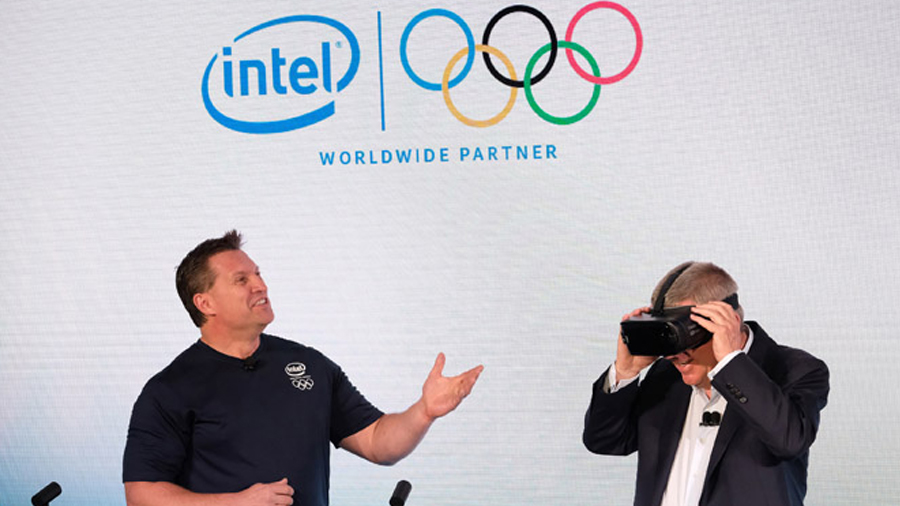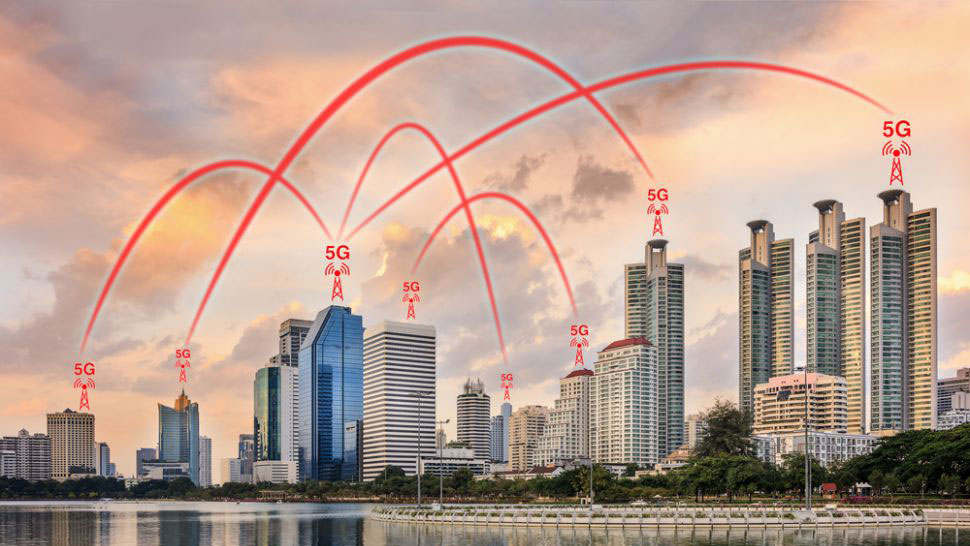Why PyeongChang 2018 Winter Olympics are a 5G milestone
Athletes are making history at the Winter Olympics, but it's an important event for 5G networks too

Pyeongchang, a county in rural Eastern South Korea, is unlikely a place as any to be the focus of the sporting world’s attention.
But thanks to its desire to host the Winter Olympics it has been thrust into the spotlight for two weeks as some of the planet’s finest athletes compete in 102 events across 15 sports.
But this previously unknown part of the world is significant for the telecoms industry too as the host of the first commercial deployment of 5G networks, offering an insight into how the technology can power future applications.

Looking to catch up on the Winter Olympics action? TechRadar has you covered:
VR broadcasts
Last year Intel signed a technology partnership with the International Olympic Committee (IOC), which will last until the 2024 Summer Olympics in Paris. It’s only been a matter of months, but Intel has made the most of its association, bringing not just 5G but also virtual reality (VR) to the games.
The 5G network is the industry’s first non-test environment, covering several PyeongChang 2018 venues. There are plenty of trials and testbeds taking place around the world, including in the UK, but this is a real-life deployment – even if the commercial devices are nowhere near ready.
“It’s a wonderful platform to bring technology to events that are the pinnacle of sporting achievement,” said Intel’s Steve Shakespeare.
One way it is doing this is live or on-demand VR coverage of 30 events, a project powered by the 5G network. Between 3 and 6 camera ‘pods’, each containing 12 4K video cameras are used for events such as speed skating, alpine skiing and bobsleigh.
Are you a pro? Subscribe to our newsletter
Sign up to the TechRadar Pro newsletter to get all the top news, opinion, features and guidance your business needs to succeed!
These cameras generate as much as 1TB of data per hour. Of course Gigabit Wi-Fi could provide the speed and capacity, but 5G offers ubiquitous coverage across the venue and offers real time control because of the low latency.
Academic pursuits
Intel isn’t the only organisation using PyeongChang 2018 as a platform for 5G. The 5GCHAMPION consortium comprises 21 universities, research institutes and companies from Europe. It claims to have created a 5G ‘proof of concept’ network and has deployed it in a bus that will travel between venues in Gangneung, which is hosting the ice events at the games.
While travelling on the bus, passengers wear VR glasses to be transported to a site in Finland using a network reaching 2.5Gbps.
Of course, unlike Intel’s network, this is proof of concept, but after the games, researchers will travel to Seoul for a 5G Symposium.
“The Winter Olympics … may offer a much-needed glimpse into early consumer applications of 5G, as companies are using the games to showcase some of the potential that the technology holds,” noted Kester Mann, an analyst with CCS Insight.
South Korea
South Korea is engaged in a global 5G race, and there are trials everywhere. But there are a number of reasons what is happening in Pyeongchang should be taken with more than just a pinch of salt.
The fact that South Korea is the host of the first Olympics covered by Intel’s deal with the IOC is fortuitous. The country is one of the most advanced mobile nations on Earth, home to some of the most advanced mobile networks and to Samsung, one of the world’s largest electronics and IT firms.
According to OpenSignal’s latest State of LTE report, South Korea has a 4G availability rate of 97.49 percent – the highest in the world. And it has average speeds of 40.44Mbps, the fourth fastest on Earth. The three countries with faster speeds all have significantly smaller populations too.
It is possible that South Korea could become the first nation in the world to break the 50Mbps barrier as deployments of LTE-Advanced (LTE-A) start to have an impact. The suggestion is that operators are working on coverage rather than speed at present, which has resulted in a temporary “plateauing” of speeds.
Its operators are pioneers in 5G and are firm contenders in the race to be first to market. Korea Telecom is Intel’s network partner in Pyeongchang, while SK Telecom has made several significant advances.

5G Future
SK Telecom will use Mobile World Congress (MWC) next week to discuss ‘5G Diplomacy’, showing off its 5G innovations in networking, AI and connected cars. Indeed, the operator has tested autonomous vehicles at a testbed called “K-City” near Seoul.
Analysts at GlobalData predict Korean operators will be eager to push 5G as traditional revenues stagnate predict 5G subscriptions in the country will outnumber 3G by 2020.
5G will be everywhere at MWC. Not as a network, but as a topic of conversation among operators, manufacturers and other parts of the mobile ecosystem who will talk about advances, trials and timelines.
Technical advances have meant that 2019 will see the first full commercial rollouts of 5G networks rather than 2020, but its still easy to dismiss 5G as hype.
But in South Korea, there are tangible examples of 5G making a difference and the PyeongChang Winter Olympics are a major milestone in the path to 5G.
Want to find out more about 5G? Check out our dedicated 5G hub!
- Check out our list of the best mobile deals for February 2018
Steve McCaskill is TechRadar Pro's resident mobile industry expert, covering all aspects of the UK and global news, from operators to service providers and everything in between. He is a former editor of Silicon UK and journalist with over a decade's experience in the technology industry, writing about technology, in particular, telecoms, mobile and sports tech, sports, video games and media.